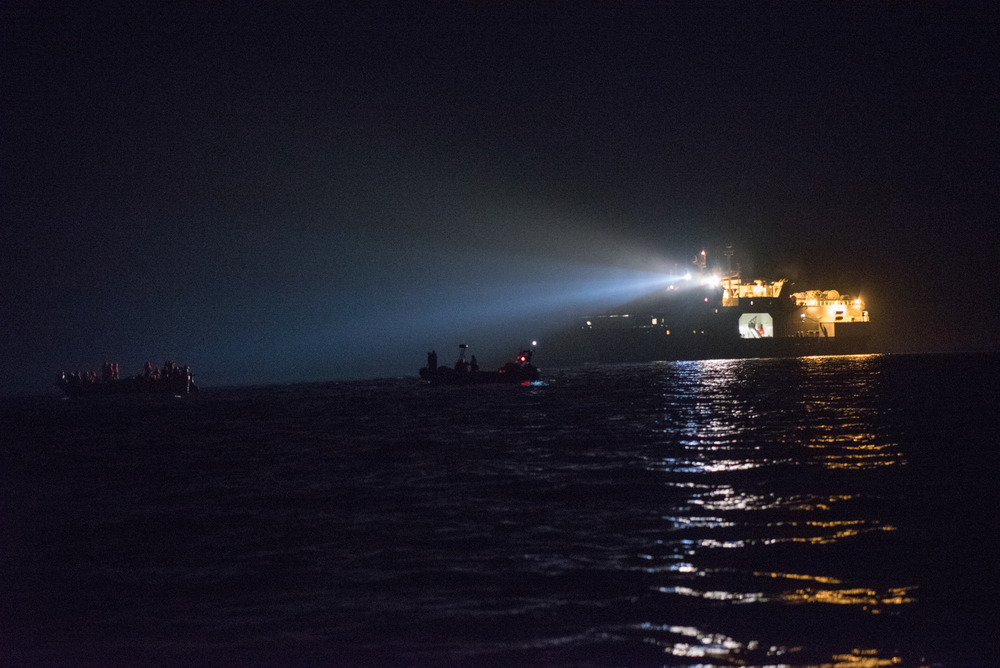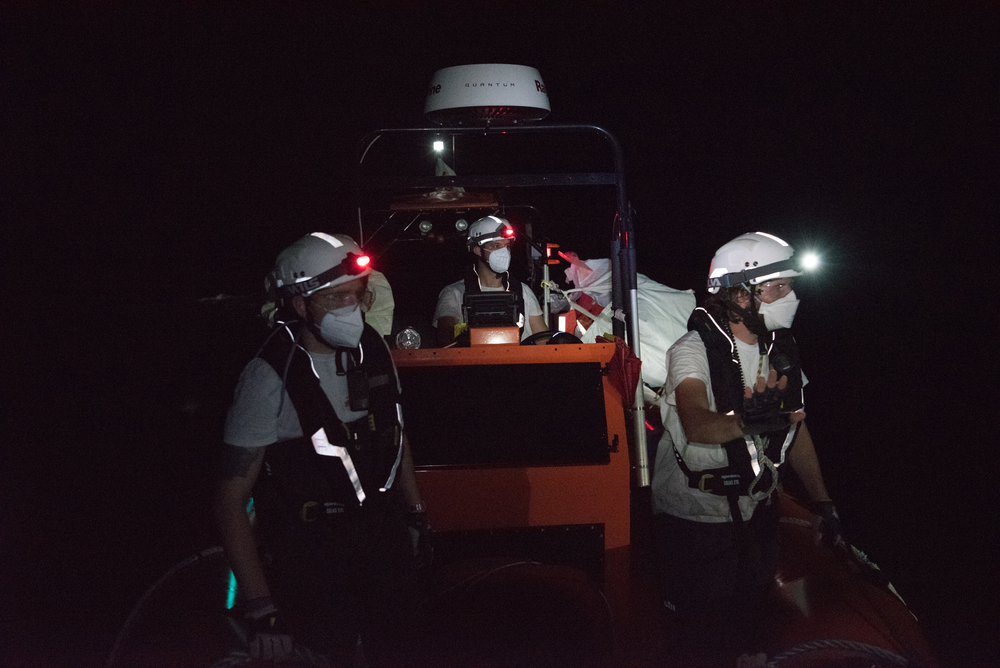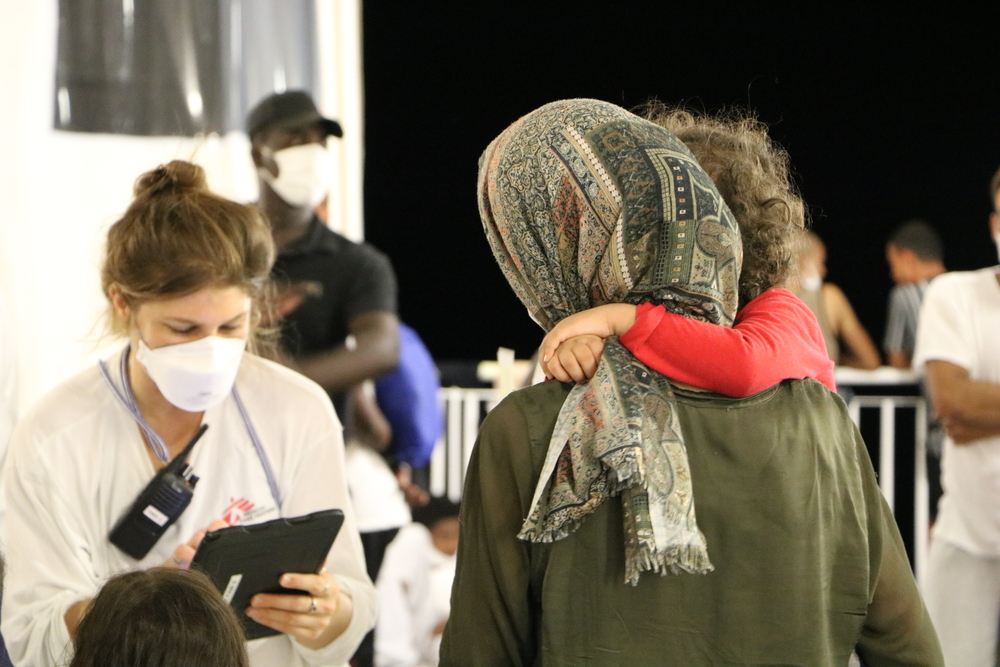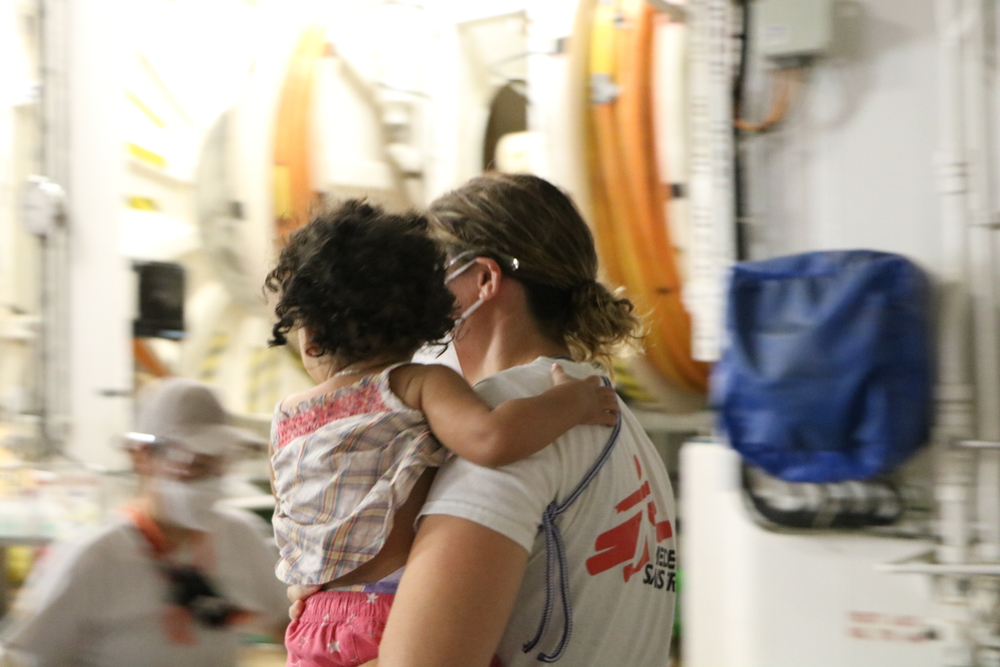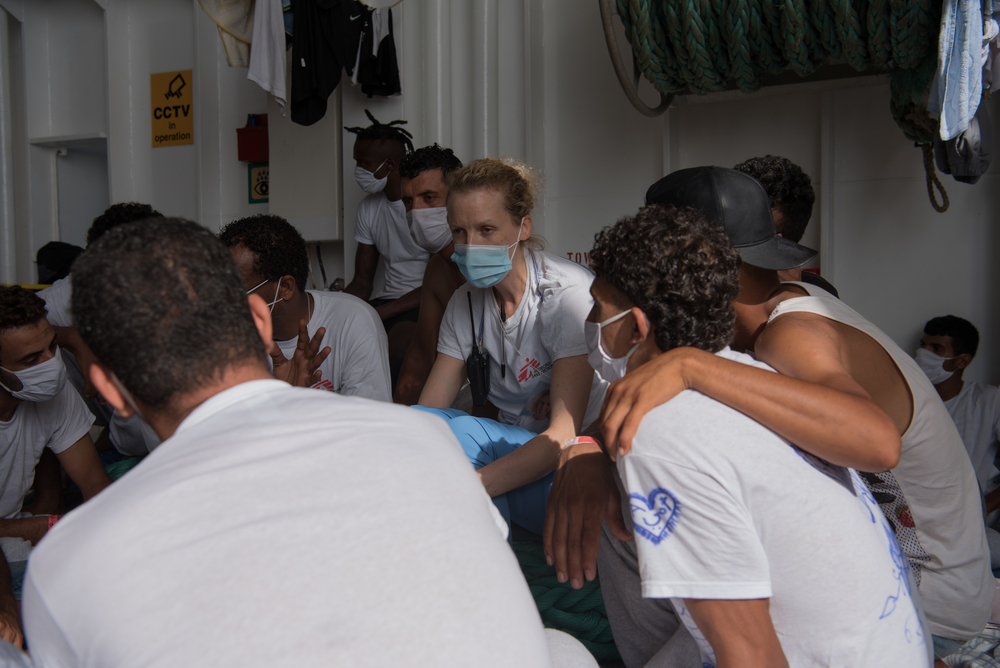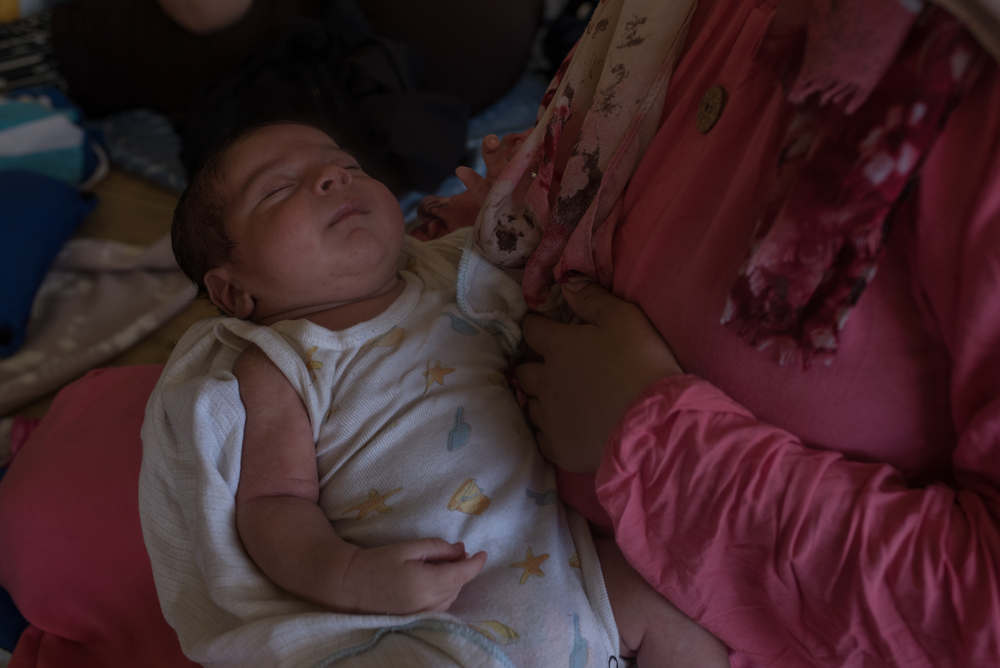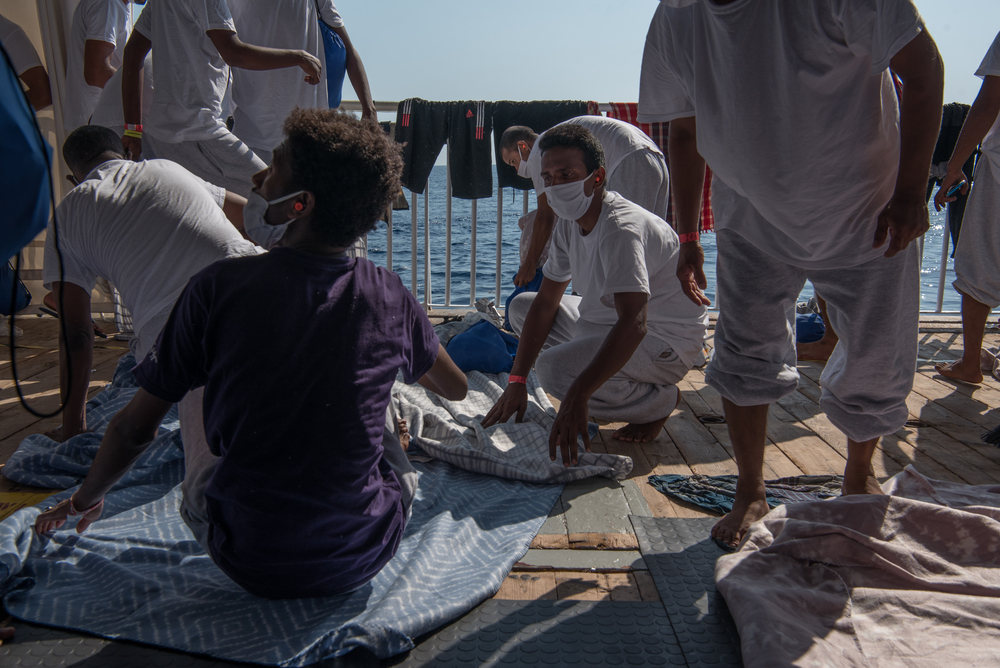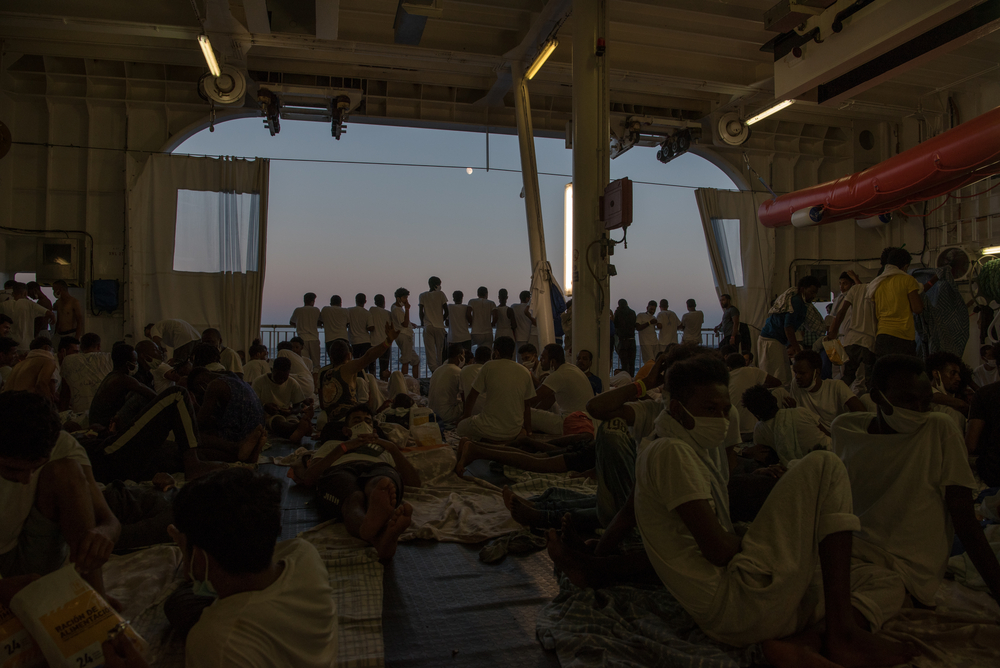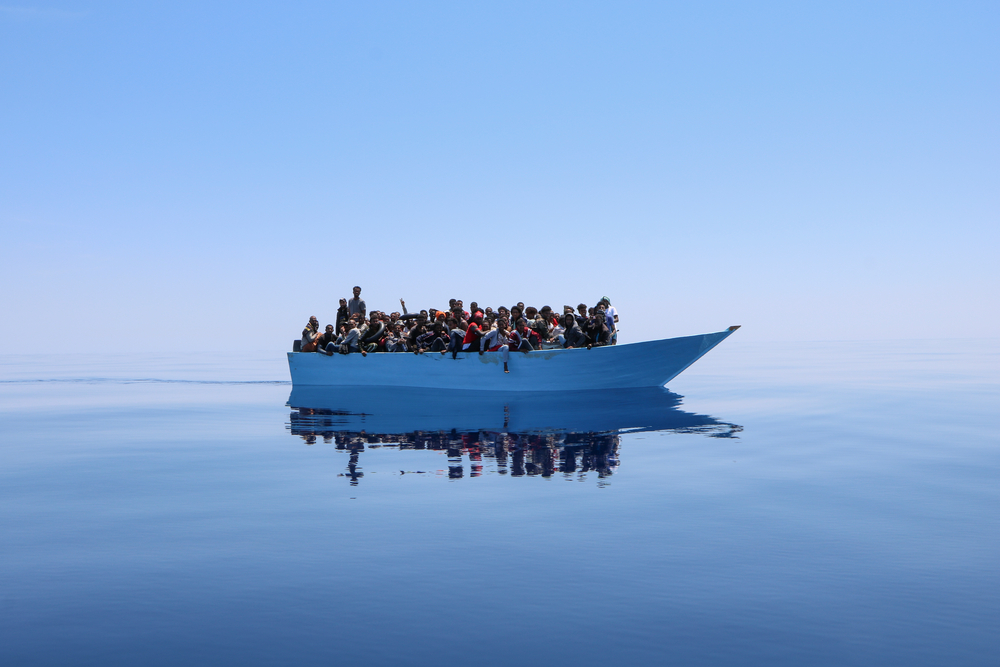Samuel
I was tortured in a big building in the middle of the desert. They torture you only to get a ransom. You know if you do not have money you are not going to survive. They were also torturing the women the same way as men. They are also raping, not only women, also men. Too many horrific things.
For three long years in Libya, I was constantly on the run. I never lived in a proper home, you cannot have any rest. I slept in the streets or wherever I had found a job. I have been freed, but some people have been in these centers for years. They are still there, for indefinite time. A lot of them are dead since then.
At sea, on the boat before you rescued us, I saw twice a white plane rotating above us. We also saw a Tunisian boat as well. I was vomiting a lot in the boat. I cannot swim. Everyone in the boat was praying. It was a very serious situation, but thank God for my life.
Samuel*, 35-year-old Nigerian man

